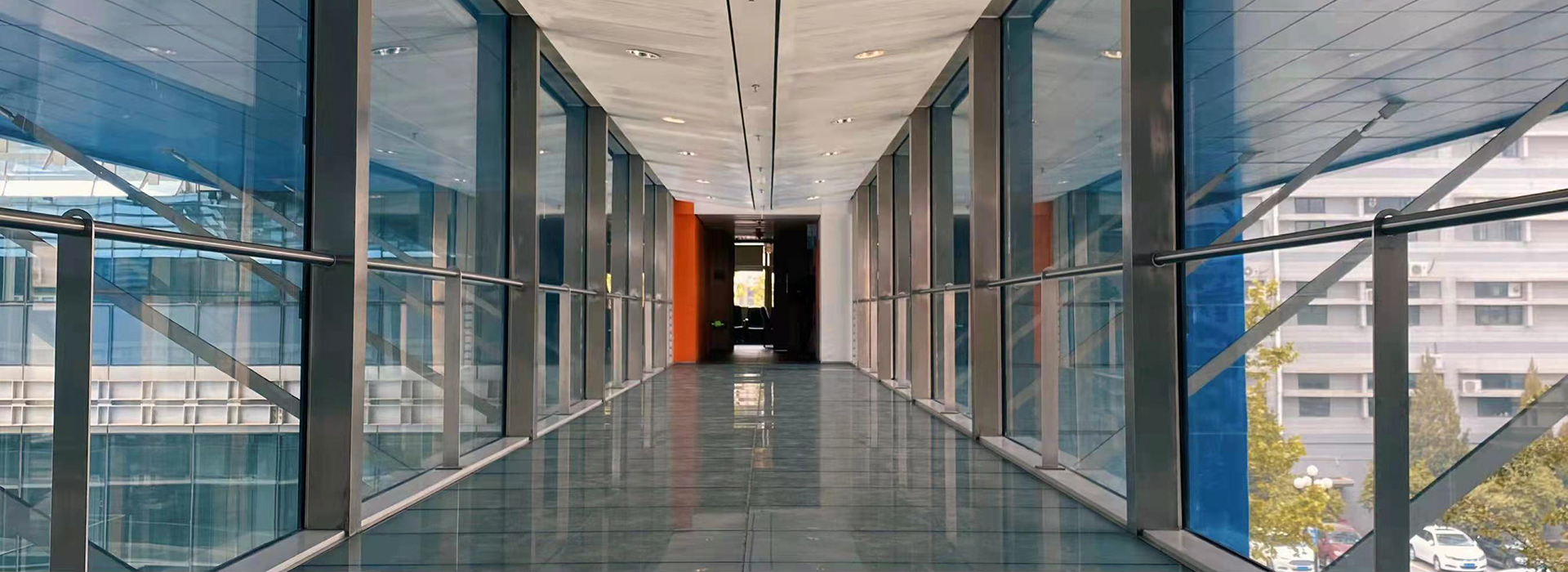On August 5, the “Carbon Peaking, Carbon Neutrality and Ecological Civilization Construction” Conference, and Annual Conference of the Ecological Civilization Education Research Branch of the China Association of Higher Education was successfully held in Xi’an. The event aimed to support China’s major strategic goals of “peaking carbon dioxide emissions before 2030 and achieving carbon neutrality before 2060”(“dual carbon goals”) and to promote green development. With the approval of the China Association of Higher Education and preliminary preparations, the forum was hosted by the Ecological Civilization Education Research Branch of the China Association of Higher Education, organized by Xi’an University of Architecture and Technology, and co-organized by the China University Ecological Civilization Education Alliance.
Du Xiangwan, an academician of the Chinese Academy of Engineering; He Kebin, an academician of the Chinese Academy of Engineering and president of the Ecological Civilization Education Research Branch of the China Association of Higher Education; Feng Qi, president of the Lanzhou Branch of the Chinese Academy of Sciences; Sun Weijie, inspector of the China Association of Higher Education; Huang Tinglin, vice president of Xi’an University of Architecture and Technology; Zhu Liyang, president of the China Association of Circular Economy; Wen Zongguo, secretary-general of the Ecological Civilization Education Research Branch; Lu Jinsuo, dean of the School of Environment and Municipal Engineering at Xi’an University of Architecture and Technology; and Xu He, deputy dean of the Ecological Civilization Research Institute at Nankai University, attended the conference. The forum was held both online and offline, with 150 representatives from nearly 100 organizations attending in person and more than 1.3 million people watching the live broadcast online.
Wen Zongguo hosted the opening ceremony of the forum. He introduced the attendees and the work of the Ecological Civilization Education Research Branch, expressed gratitude for the support from various sectors of society, and pledged that the branch would continue to work diligently to provide services and make positive contributions to the cause of ecological civilization construction.
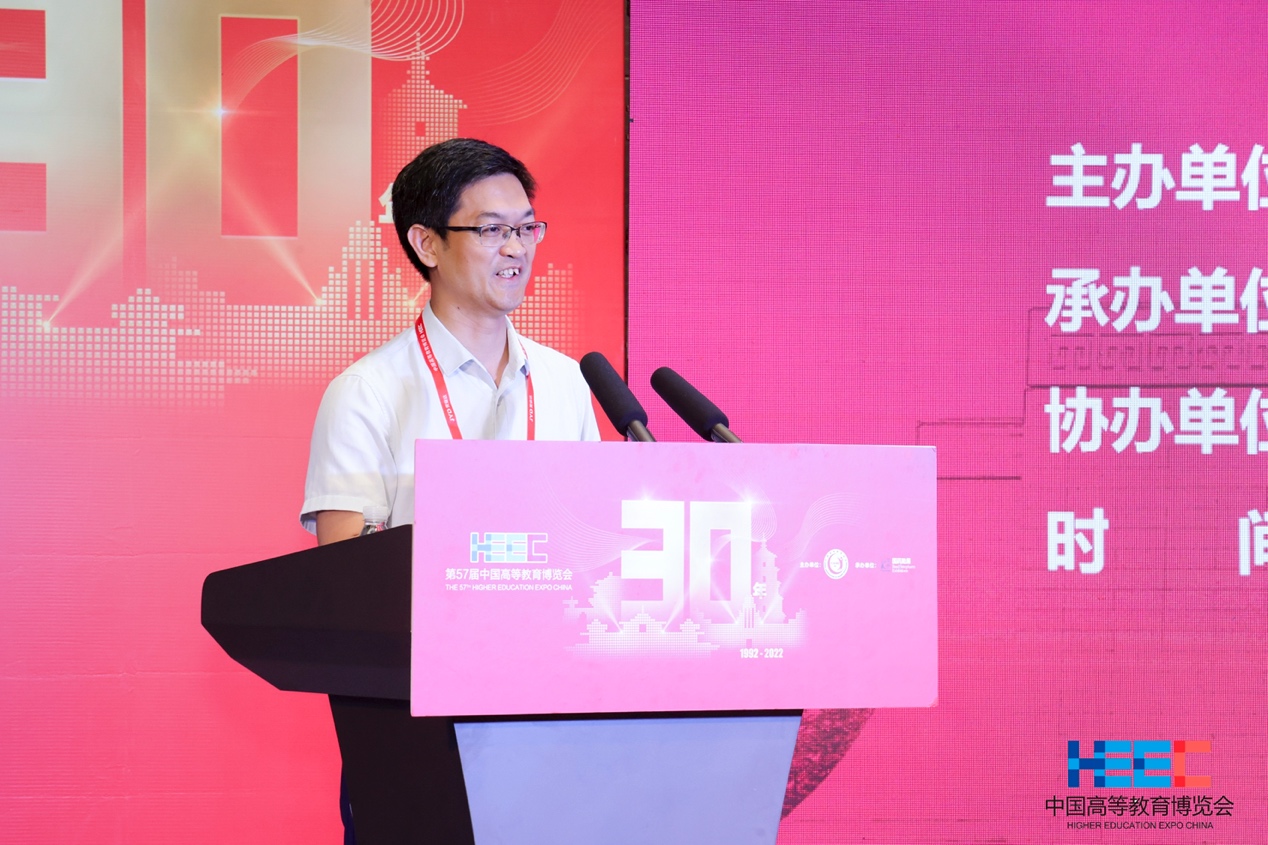
Wen Zongguo opening and presiding over the forum
He Kebin, Huang Tinglin, and Sun Weijie each delivered speeches, warmly welcoming the experts and scholars attending the forum, introducing the forum’s background, themes, and organization process, and encouraging delegates to actively engage in exchanges and cooperation.
He Kebin pointed out that global warming, biodiversity, and environmental pollution have become three major issues of particular concern to the United Nations in recent years. He hoped that the annual conference would further integrate the work of the Ecological Civilization Education Research Branch with the “dual carbon goals”, promote domestic and international academic exchanges, and invite experts and scholars in low-carbon and zero-carbon fields to discuss cutting-edge carbon neutrality research, technological innovation, and strategic thinking, thereby promoting technological advancements in the carbon neutrality field and contributing to China’s ecological civilization construction.
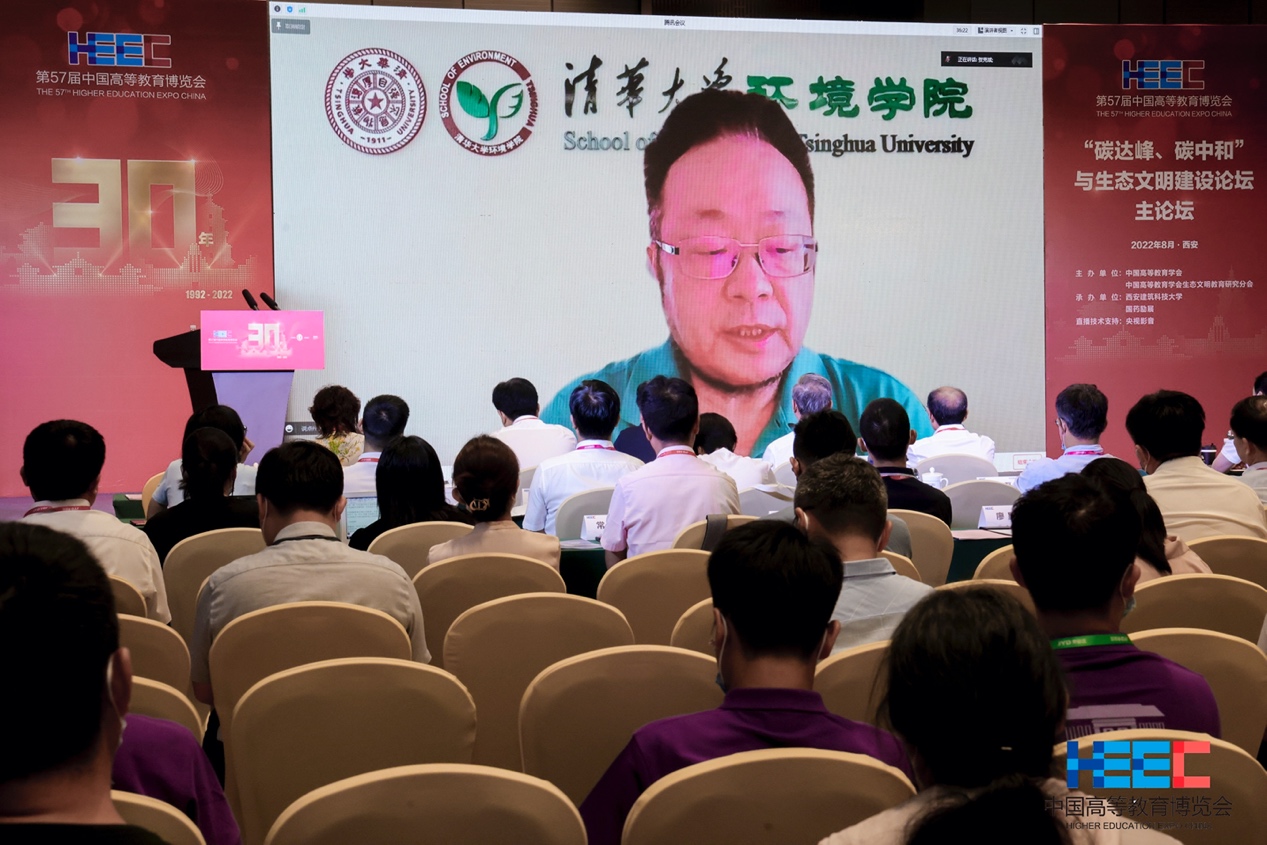
He Kebin giving a speech
Huang Tinglin elaborated on the importance of proposing and implementing “dual carbon goals” from the perspective of western development. He stated that Xi’an University of Architecture and Technology, as the organizer of the forum, would focus on providing service support. He hoped that the forum would spark new ideas, create new opportunities, and establish new collaborations.
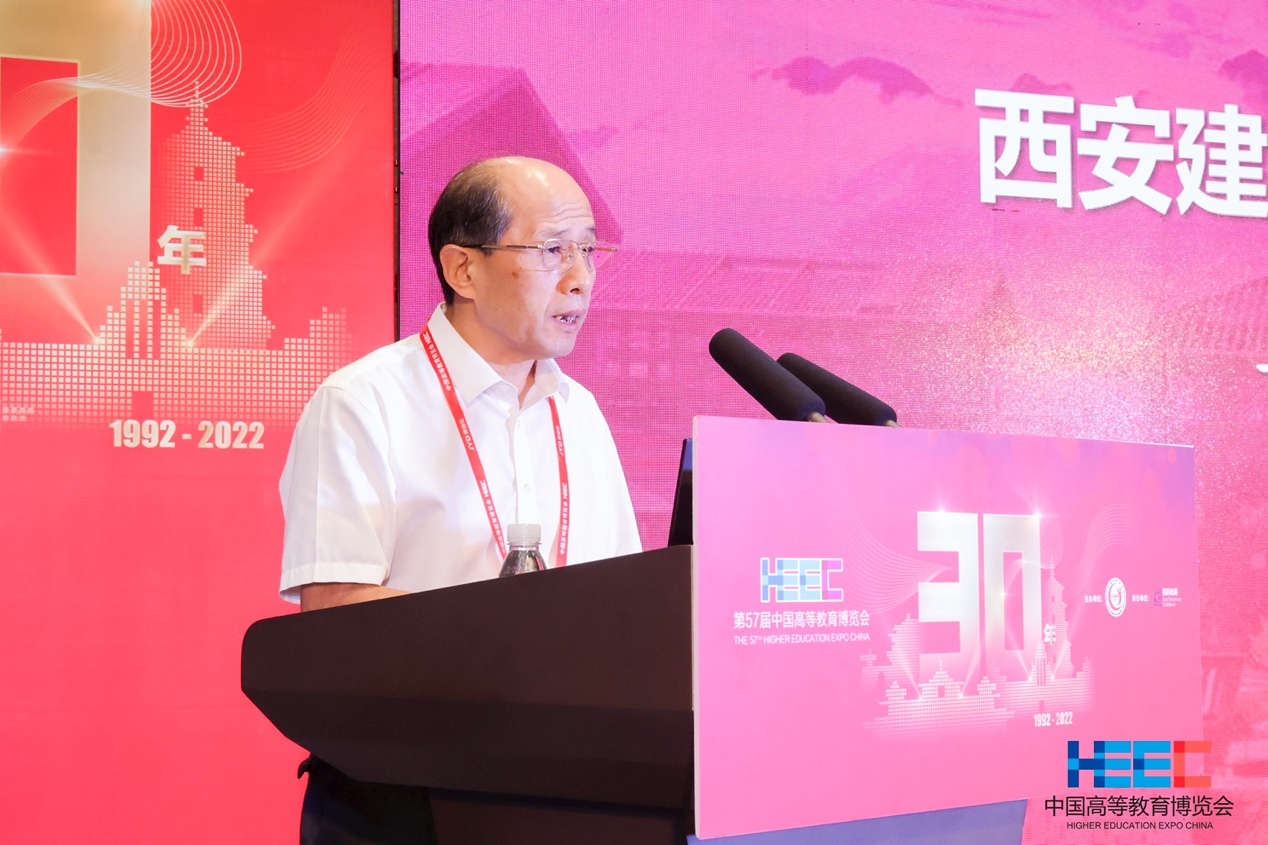
Huang Tinglin giving a speech
Sun Weijie mentioned that, since the 18th National Congress of the Communist Party of China, the central government has placed ecological civilization construction in a prominent position in the overall work. This forum brought together experts and scholars from various fields to discuss carbon peaking, carbon neutrality, and ecological civilization construction, which was timely and significant. He hoped that experts and scholars would offer insightful strategies, brainstorm for development, and make new contributions to the realization of “dual carbon goals” and the construction of ecological civilization.
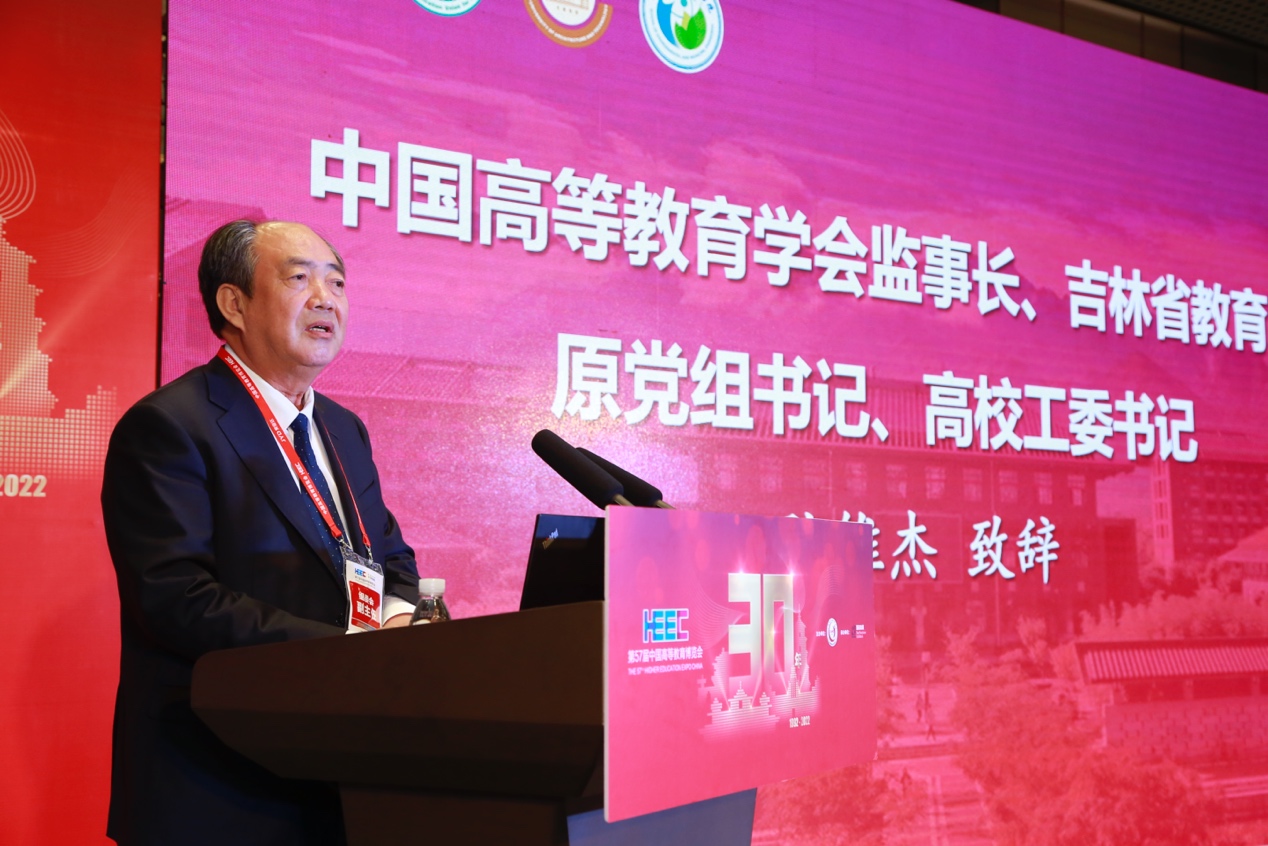
Sun Weijie giving a speech
The keynote report segment was chaired by Xu He. Centered around the theme “Carbon Peaking, Carbon Neutrality, and Ecological Civilization Construction,” Du Xiangwan, He Kebin, Feng Qi, Zhu Liyang, and Lu Jinsuo each delivered keynote presentations.
Du Xiangwan, in his keynote speech titled “Thoughts on China’s Carbon Peaking and Carbon Neutrality Strategy and Path,” pointed out that achieving carbon peaking and carbon neutrality is in line with the trend of green development and is essential for promoting high-quality and sustainable economic and social development. China still faces challenges such as a heavy industrial structure, coal-dominated energy structure, and low overall efficiency. To achieve the “dual carbon goals”, he proposed eight strategies: the priority of conservation and efficiency, energy security, non-fossil fuel substitution, re-electrification, resource recycling, carbon sequestration, digitalization, and international cooperation. He emphasized the need to further establish a unified planning, deployment, implementation, and evaluation mechanism, improve coordinated strategies and policy planning for pollution reduction and carbon reduction, so as to enhance the quality and efficiency of economic development.
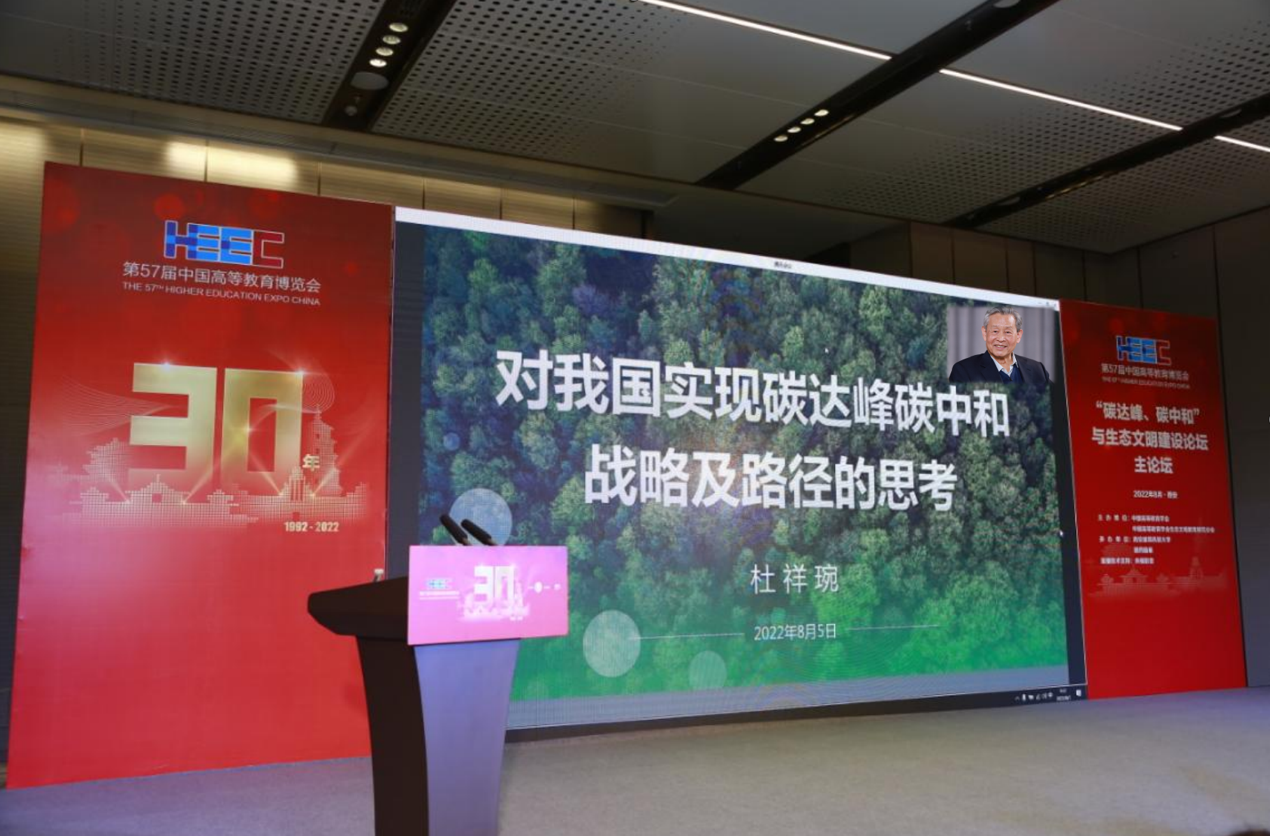
Du Xiangwan giving his keynote speech
He Kebin, in his keynote speech titled “Dual Carbon Action and Green High-Quality Development,” focused on the significance, urgency, and response measures of incorporating “dual carbon goals” into China’s ecological civilization construction. He pointed out that potential paths for carbon reduction in the future include carbon reduction by resource efficiency improvement, decarbonization by energy structure optimization, carbon storage by geological space, carbon sequestration by ecosystem, and carbon integration by market mechanism.. The feasibility and importance of carbon reduction should be interpreted from both technical measures and market mechanisms.
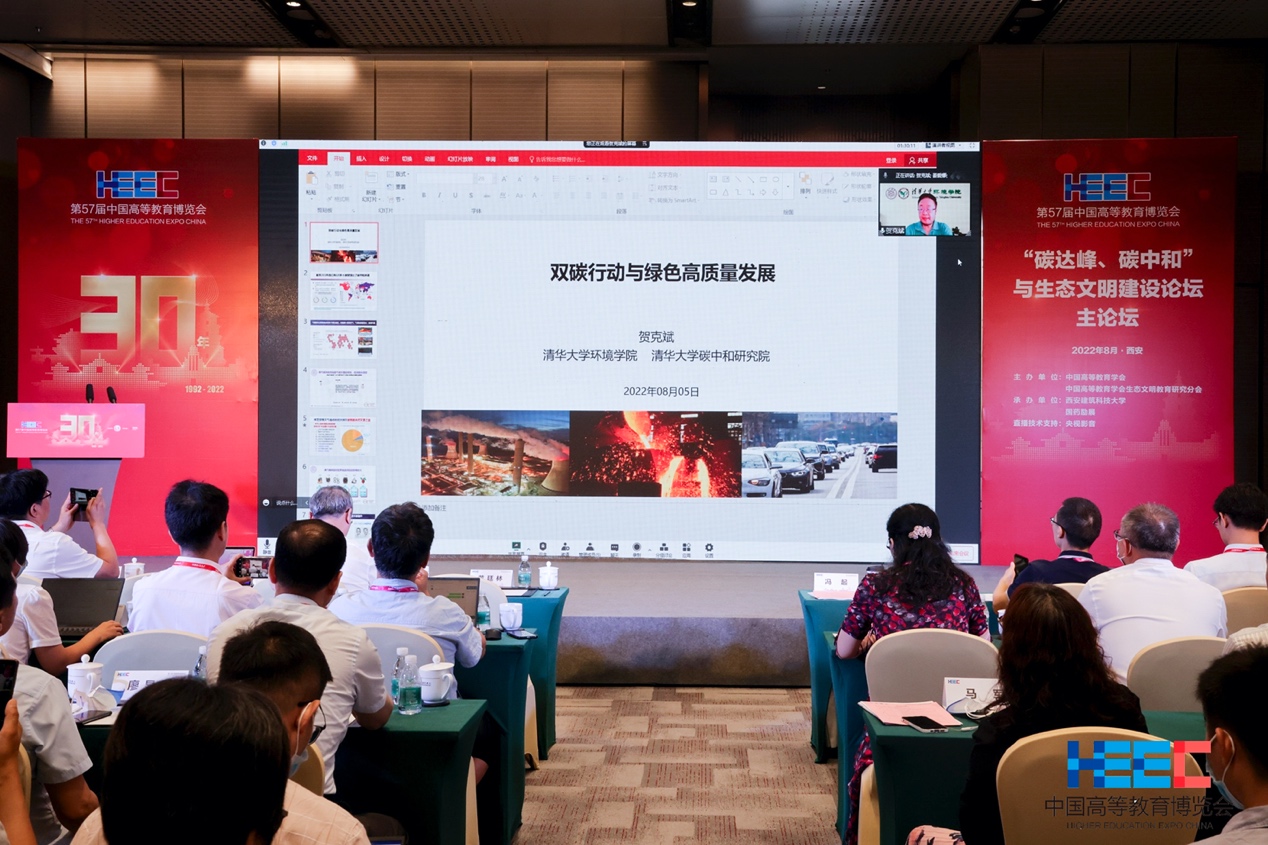
He Kebin giving his keynote speech
On the topic “Progress in Carbon Cycle Research in Cold and Arid Regions,” Feng Qi discussed the situation of carbon source and carbon sink in cold and arid regions, the challenges faced by China in achieving dual carbon targets, and the challenges brought about by global climate change to carbon reduction. He proposed solutions from the carbon emission, power generation, and carbon sequestration aspects for the northwest region’s work on achieving “dual carbon goals”. He suggested establishing an overall planning system for the northwest region to stabilize its carbon sinks and contribute to national ecological carbon sequestration.
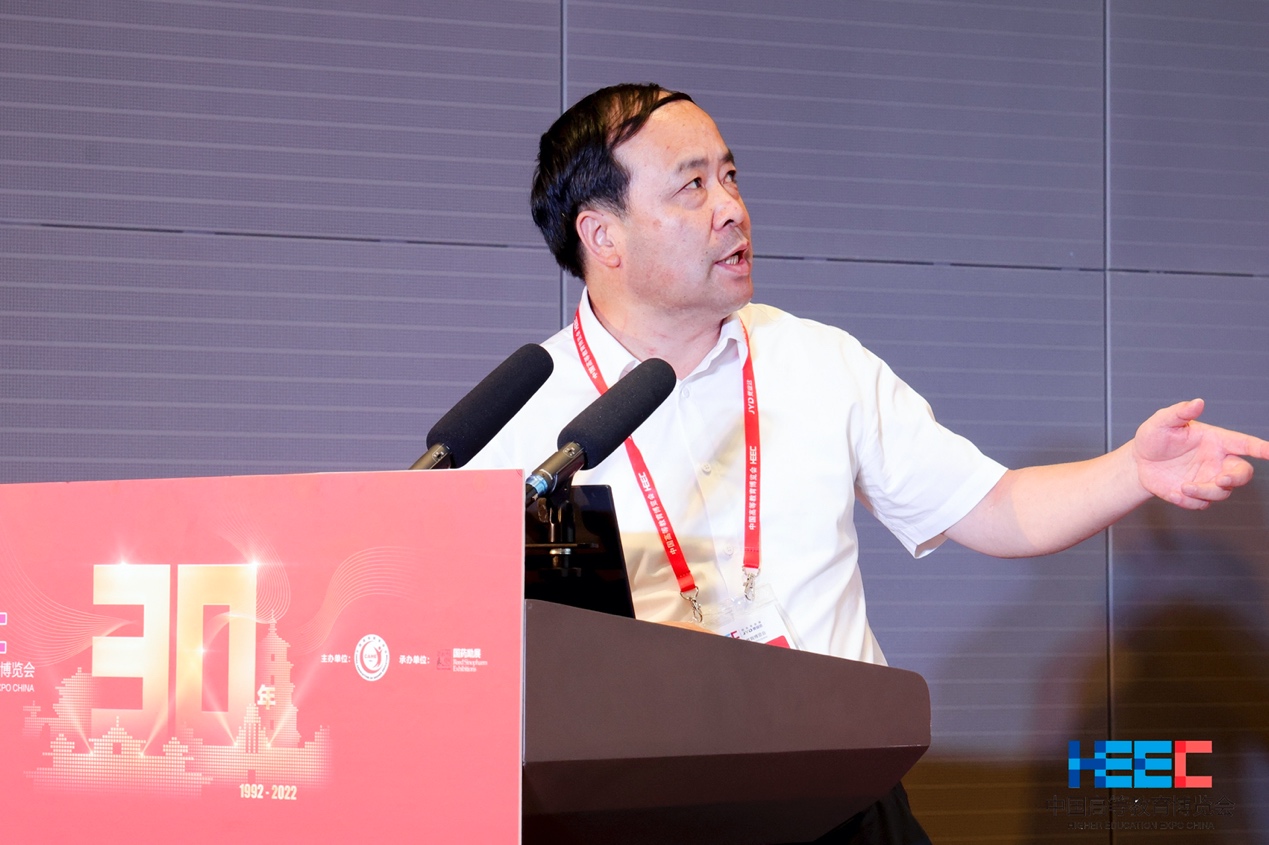
Feng Qi giving his keynote speech
With the theme “Circular Economy Promoting Carbon Peaking and Carbon Neutrality: Theory and Practice,” Zhu Liyang explored the principles and effects of the circular economy in aiding carbon reduction. He pointed out that China has reached a general consensus that the circular economy is an important national development strategy and it’s essential to focus on resource efficiency and recycling, take reducing, reusing and recycling resources as the principle, feature low consumption, low emissions, and high efficiency, so as to balance development and emissions reduction. He stated that the circular economy aids carbon reduction mainly through five principles: material substitution, process optimization, fuel substitution, energy efficiency improvement, and product recycling. He suggested focusing on three key areas: industrial parks, high energy-consuming and high-emission industries, and consumption; and making efforts in four main directions: promoting circular development in industrial parks, strengthening comprehensive utilization of large solid wastes, improving the resource recycling system, and vigorously promoting waste reduction and recycling. This would promote China’s circular economy development and contribute to the realization of “dual carbon goals”.
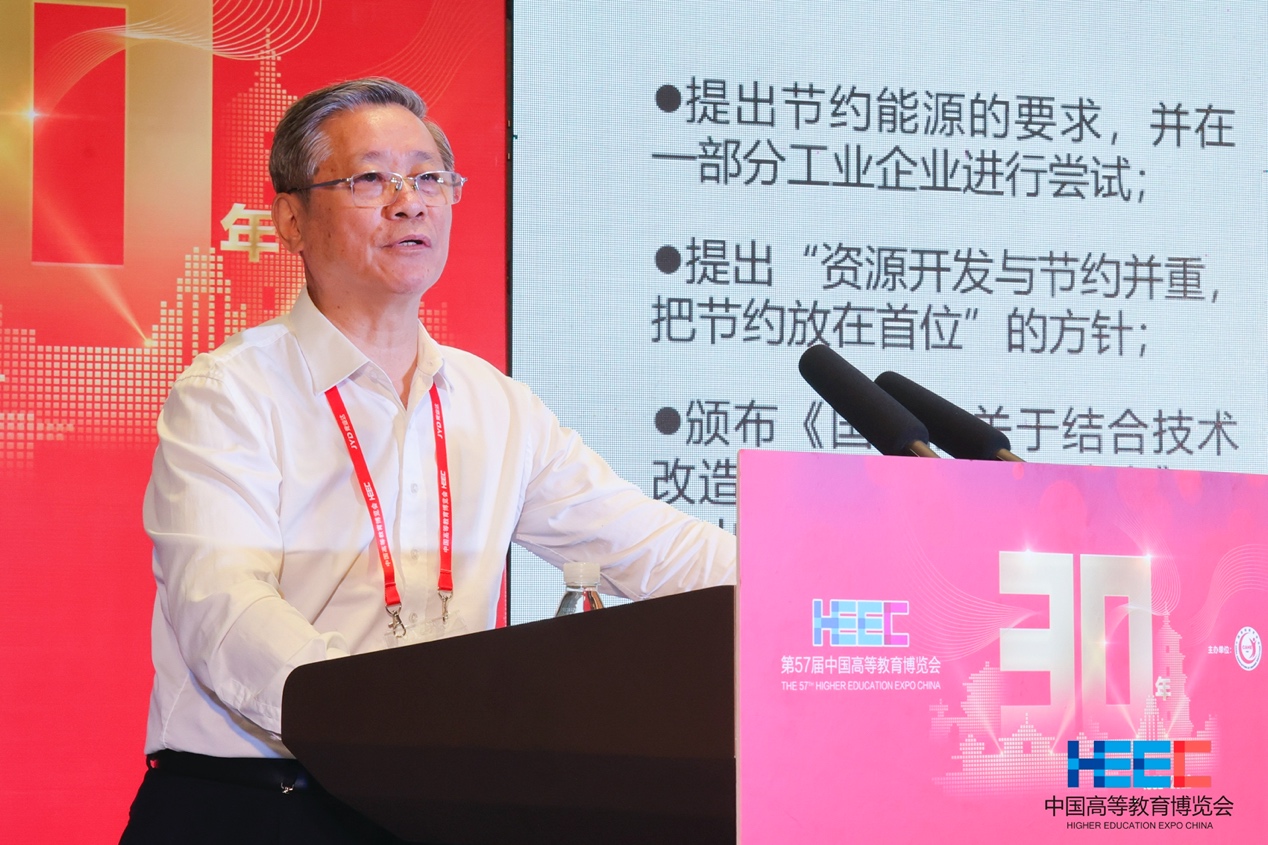
Zhu Liyang giving his keynote speech
In his keynote speech titled “Carbon Reduction Strategy for Urban Drainage System,” Lu Jinsuo analyzed the carbon emission status of urban sewage systems and the carbon reduction paths for these systems, and pointed out that the drainage industry is one of the top ten carbon-emitting industries. He suggested that sewage treatment plants are centralized carbon emission points with the potential to transform emitted carbon sources into energy for centralized recovery and utilization. Preliminary research indicates that the core of carbon reduction in pipeline networks is the biological activity, and algae can reduce methane emissions. Sewage pipeline networks may become a source of energy and carbon source in the future. He mentioned that Xi’an University of Architecture and Technology is conducting related research, hoping to promote the realization of China’s “dual carbon goals” through carbon reduction in urban drainage systems.
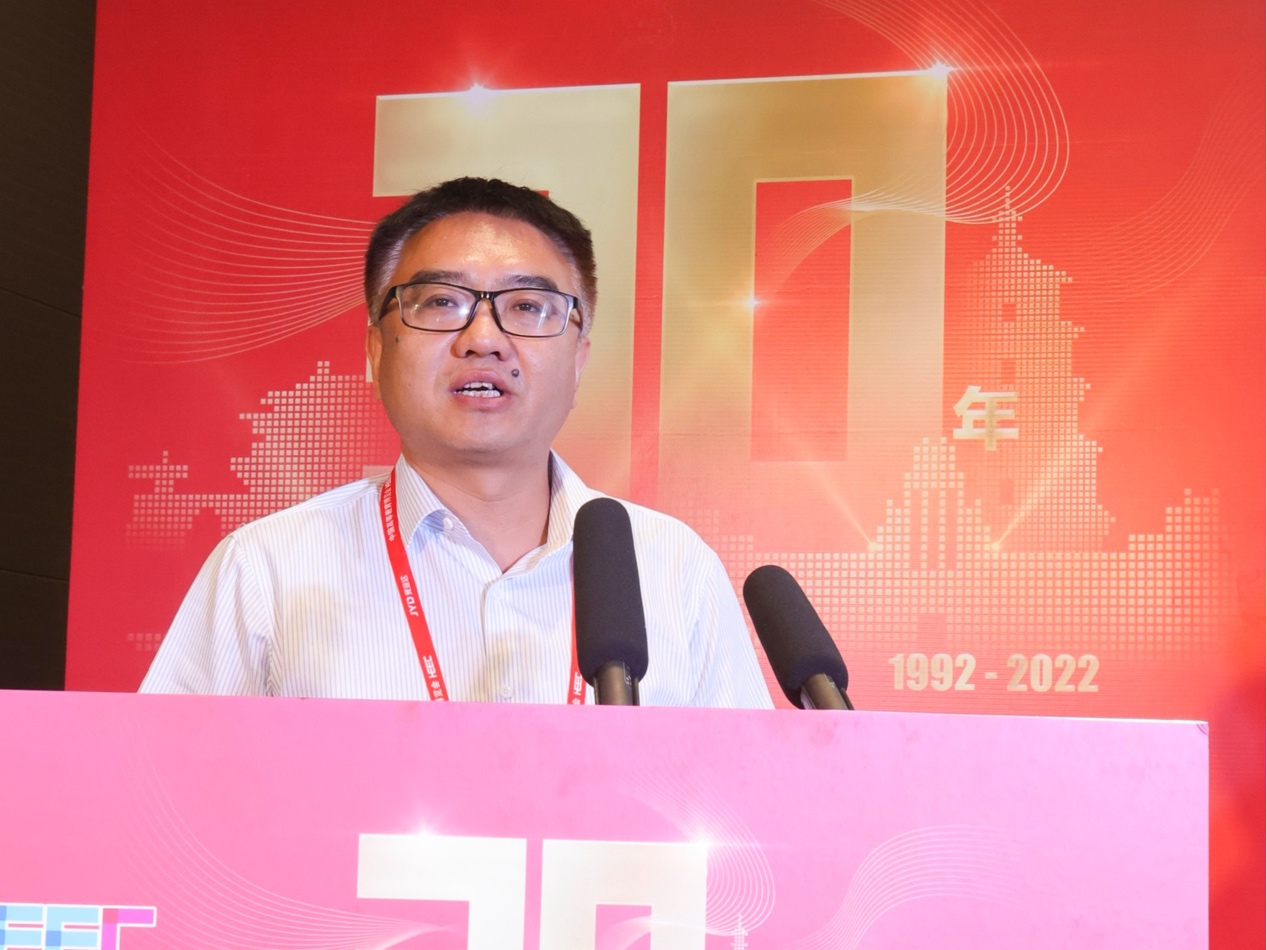
Lu Jinsuo delivering his keynote speech
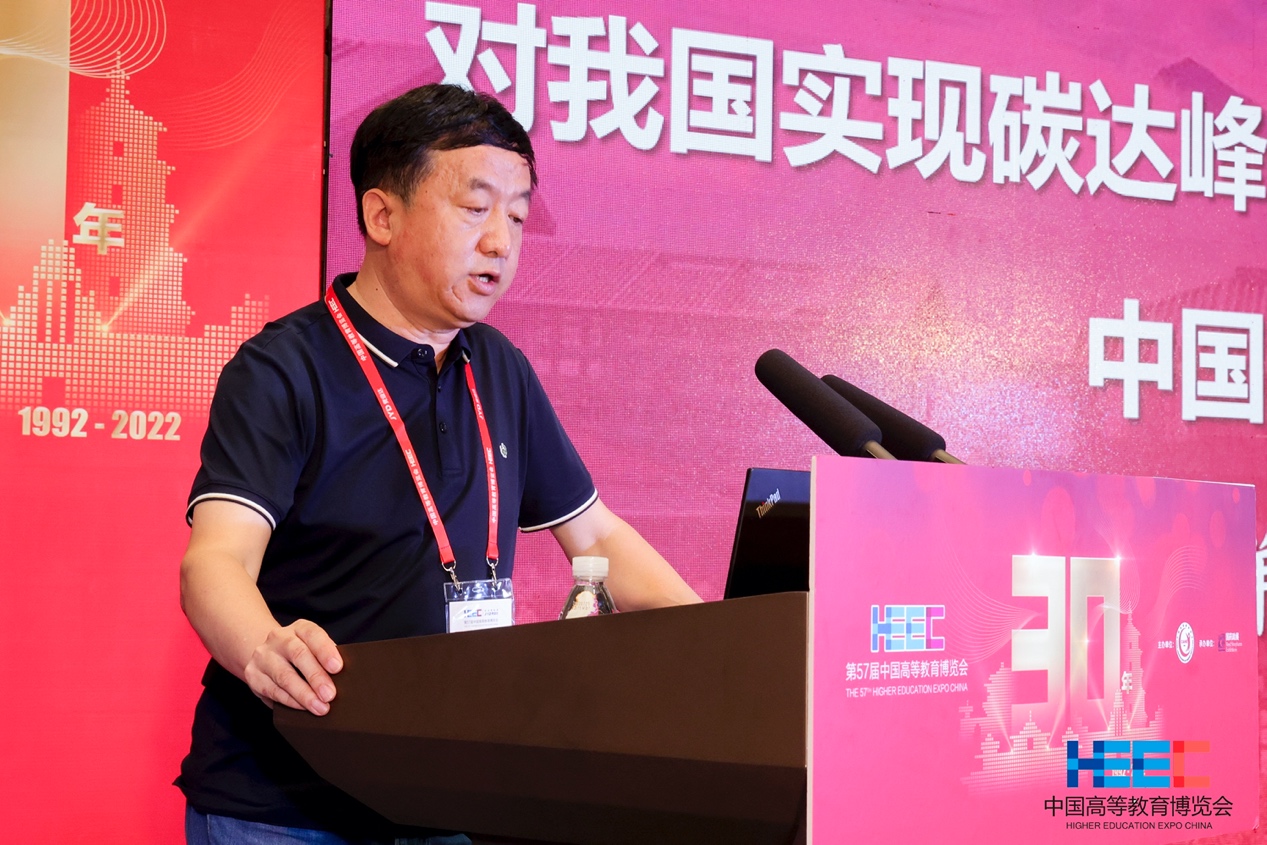
Xu He chairing the keynote speeches segment
In addition to the main forum, the one-day conference also featured two sub-forums: the Ecological Civilization Education Research Institute Deans Roundtable Forum and the “Implementing the New Development Concept and Promoting Carbon Peaking and Carbon Neutrality” Forum. Experts and scholars engaged in lively discussions on topics like carbon peaking, carbon neutrality, and ecological civilization construction.
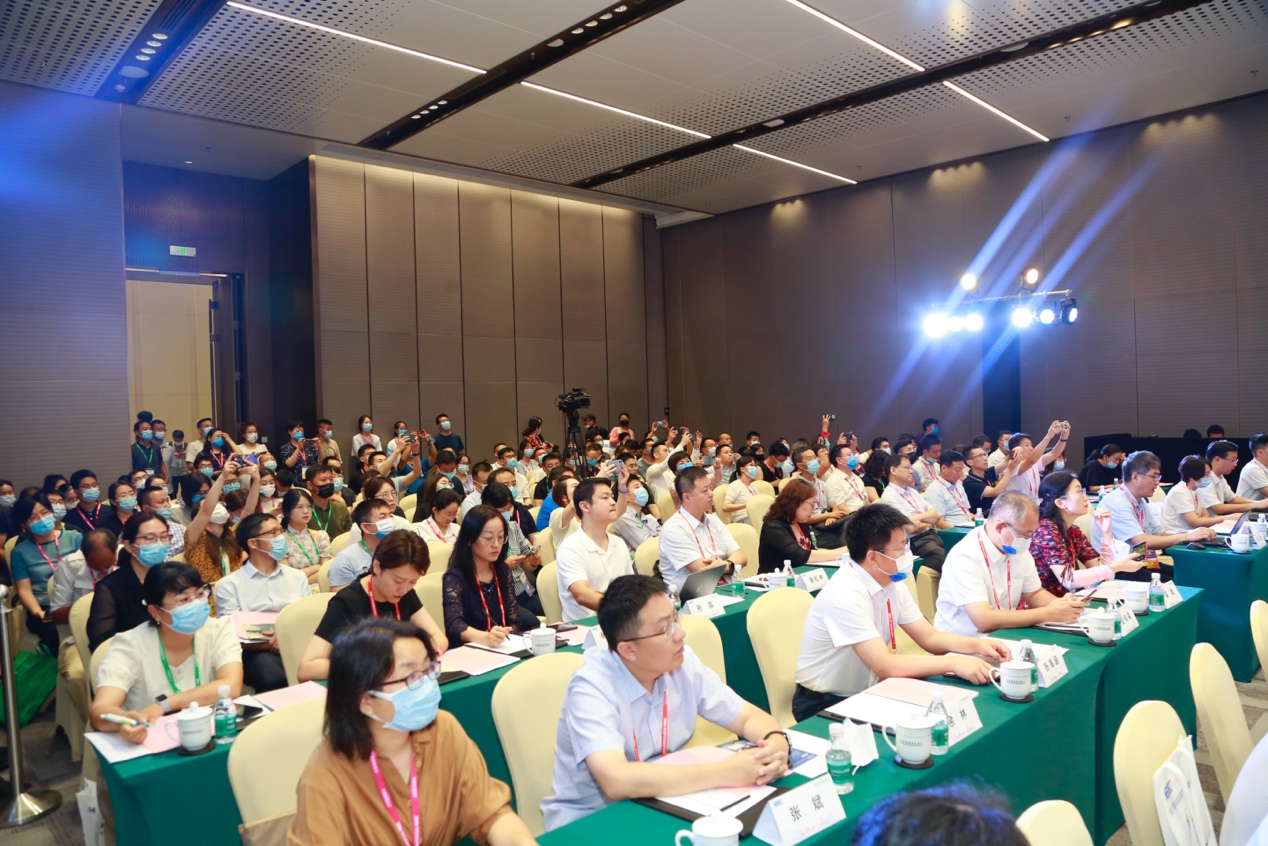
Conference Scene
The Ecological Civilization Education Research Branch of the China Association of Higher Education was established in 2019, led by Tsinghua University and jointly initiated by other universities. The secretariat is located in the School of Environment at Tsinghua University. It is a national, professional, and non-profit academic organization engaged in ecological civilization education research and practice, aiming to promote the construction of ecological civilization theory, and strengthen scientific research and talent cultivation. This forum summarized the latest research achievements in carbon peaking, carbon neutrality, ecological civilization construction, and education research. It outlined a dual-carbon path blueprint from different perspectives, discussed talent cultivation issues under “dual carbon goals”, and proposed countermeasures and suggestions for high-quality social development under dual carbon policies. The forum has enhanced the influence of the Ecological Civilization Education Research Branch of the China Association of Higher Education in the field of “dual carbon” and ecological civilization construction, effectively promoting exchanges and cooperation among environmental and ecological professionals.
Contributed by: Ecological Civilization Education Research Branch, China Association of Higher Education



